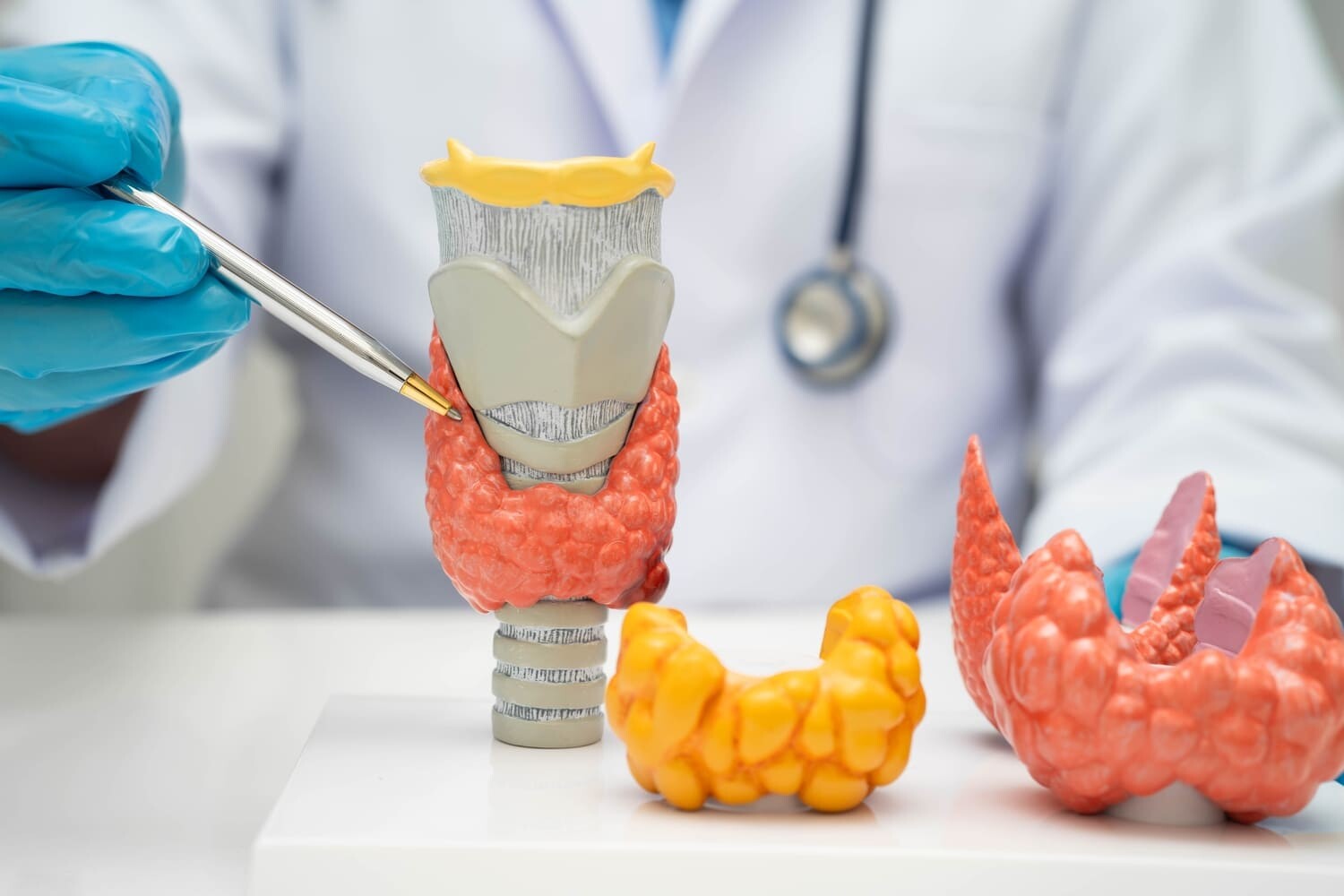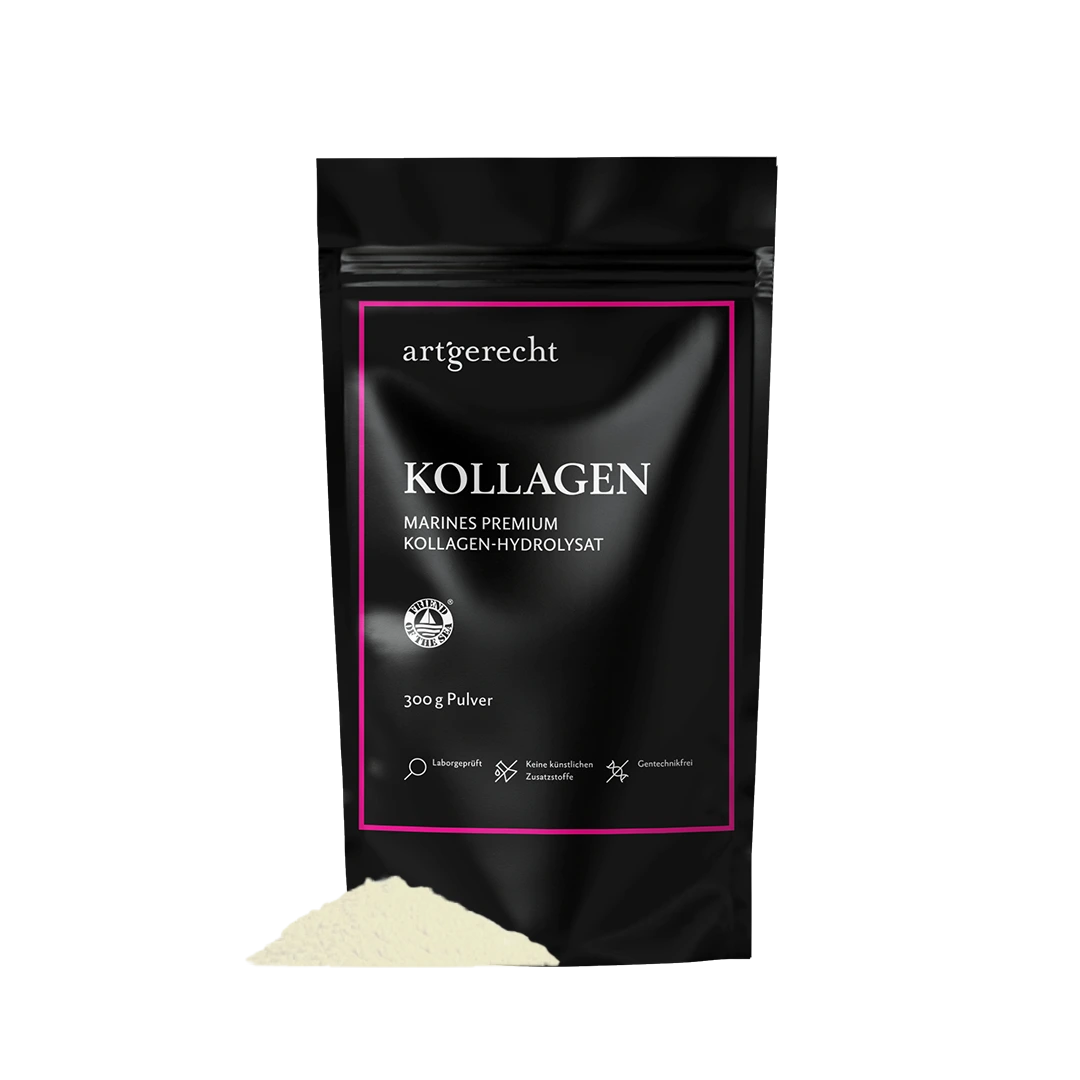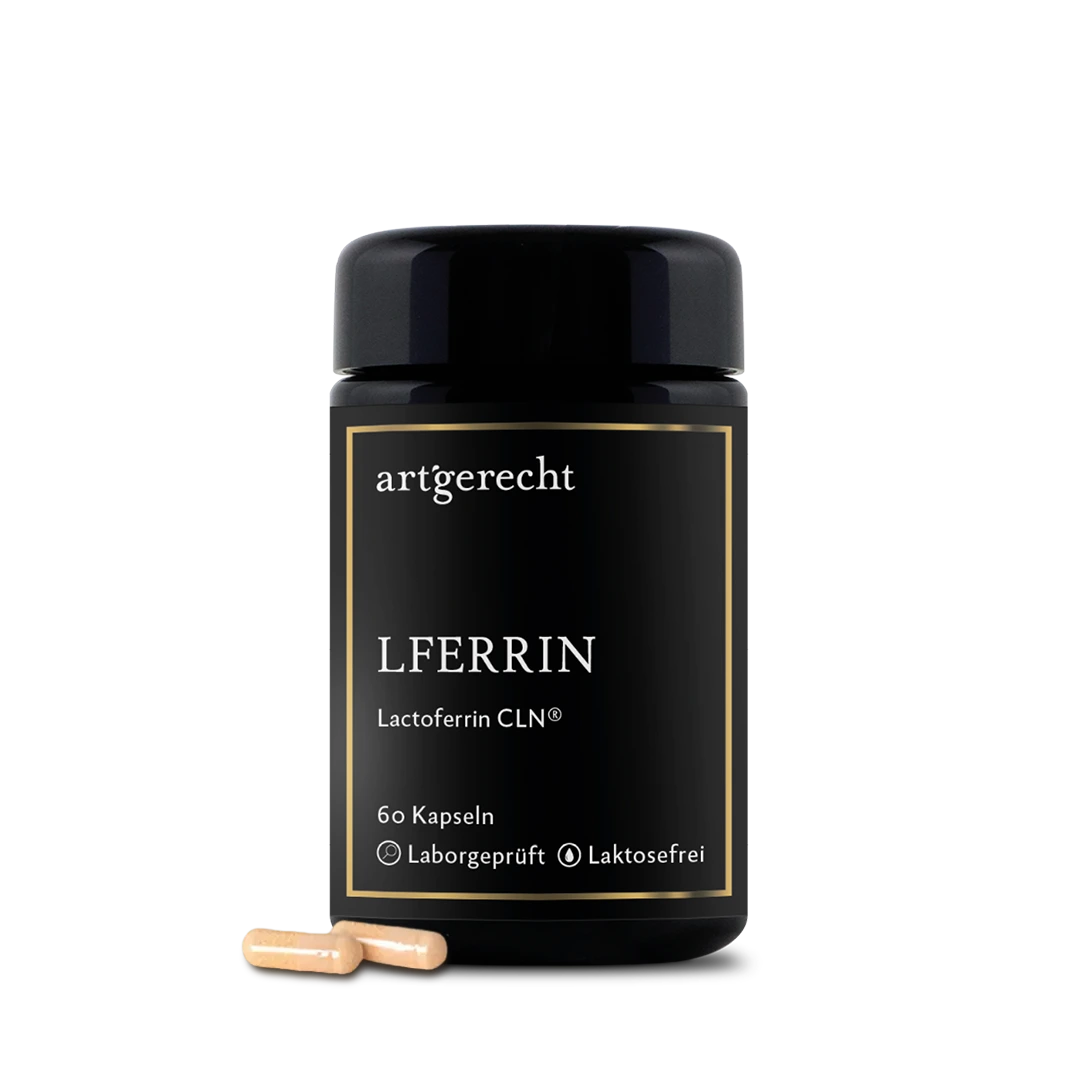- Food in evolution: diversity and quality
- Food availability and genetic adaptation
- Nutrition and brain development from an evolutionary perspective: A multidimensional view
- Food for the brain – An evolutionary perspective
- Nutrition: Essential substances for the structure and function of the brain
- Protect: Reduce oxidative stress and inflammation
- Energize: Efficient energy sources for the brain
- Conclusion: Evolutionary nutrition for a healthy brain
Human nutrition has evolved over millions of years in the context of specific environmental, social and biological conditions. These evolutionary conditions have shaped our genes and metabolic mechanisms and continue to influence how our bodies respond to certain foods, nutrient availability and deficiencies. An understanding of these relationships is essential in order to assess the health challenges of our modern diet and integrate these findings into everyday therapeutic practice.
Food in evolution: diversity and quality
The diet of early Homo sapiens was heavily dependent on the environment. In the Stone Age, as hunter-gatherers, the diet consisted of meat, fish, offal, eggs, roots, seeds, nuts, fruit and occasionally honey. This diet was rich in nutrients such as essential fats, proteins, minerals and vitamins. The food was unprocessed and its nutrients were highly bioavailable. Particularly noteworthy is the access to DHA (docosahexaenoic acid) and AA (arachidonic acid) through the consumption of seafood and animal products, which were essential for brain development.
- Animal products: Provided high-quality protein, vitamin B12, iron, zinc and selenium, taurine and L-carnitine, which are crucial for neuronal development and immune function.
- Plant-based products: provide fiber, fiber, phytochemicals and micronutrients such as magnesium and potassium.
- Seafood: Were a significant source of iodine, DHA and EPA, which enhanced the evolutionary advantage of cognitive development, especially in regions with access to coastlines.
Food availability and genetic adaptation
The availability of food has not been constant over the course of evolution. Periods of food abundance alternated with periods of scarcity. These cyclical conditions shaped mechanisms such as the ability to store energy efficiently (e.g. through body fat) or to utilize ketogenic states, in which the body uses ketones instead of glucose as an energy source. This ability ensured survival during periods of fasting or seasonal scarcity. The human metabolism therefore had to react metabolically flexible to the requirements.
Genetic adaptation to specific environmental conditions is also reflected in regional differences. For example, humans in northern latitudes developed a higher tolerance to vitamin D deficiency, while in tropical regions the adaptation to a diet richer in fiber was more pronounced.Deficiency situations and metabolic resilience
Deficiency situations were the norm in evolution, not the exception. Nutrient deficiencies such as vitamin D deficiency during long winter periods or protein deficiency in certain climatic regions led to the development of compensatory mechanisms. At the same time, the regular availability of certain nutrients such as vitamin B12 or DHA had a formative influence on brain development. The alternation between scarcity and abundance formed metabolic resilience - the body's ability to adapt to different conditions.
The ""Survival of the Fattest"" hypothesis (Cunnane & Crawford, 2007) suggests that brain development was promoted by a continuous supply of fatty acids and micronutrients from aquatic habitats. This could characterize Homo sapiens as a „gatherer-fisherman“ rather than a classic hunter-gatherer.
Why is the evolutionary perspective still relevant today?
Today's food environment is drastically different from that of our ancestors. Industrially processed foods, an oversupply of refined carbohydrates and high levels of fat, and an insufficient intake of essential micronutrients are at odds with the conditions under which our genes evolved. This discrepancy contributes to the development of modern diseases of civilization such as obesity, type 2 diabetes and neurodegenerative diseases.
Considering evolutionary principles in nutritional advice offers a practical approach to support both the prevention of disease and the promotion of brain and general health. Incorporating nutrient-rich foods such as fish, meat, eggs, vegetables, fruits and nuts into the diet can help to better meet the body's genetic needs and provide long-term health benefits.
Nutrition and brain development from an evolutionary perspective: A multidimensional view
The development of the human brain is one of the most fascinating phenomena in evolution. Nutrition played a fundamental role in this process, as it ensured the supply of essential nutrients that are indispensable for the growth, function and protection of the brain.
Nutrition and Brain – Evolutionäre Anchoring
At around 1,300 to 1,400 grams, the human brain is not only one of the largest in the animal kingdom, but also the most metabolically active. It consumes around 20 % of the resting energy requirement, although it only accounts for 2 % of the body mass. This evolutionary peculiarity is often referred to as the „expensive brain“. The ability of Homo sapiens to develop such a brain was largely determined by the availability of high-quality food.
A shift from a purely plant-based diet to a mixed diet rich in animal products, fish and later cooked/heated foods is considered a key factor in the evolution of the human brain. In particular, the introduction of fish and meat rich in algae and high in protein provided a crucial metabolic foundation. Studies, such as that by Cunnane et al. (2007), show that aquatic habitats with a rich supply of essential fatty acids in particular promoted brain development.
Essential nutrients for the brain: the basis of cognitive development
The function and structure of the brain require the supply of essential nutrients. These promote neuronal plasticity, signal transmission and energy supply. The most important nutrients include:
Structure-forming nutrients
Docosahexaenoic acid (DHA): DHA is a major component of neuronal membranes and ensures their fluidity and signal transmission. Studies show that DHA is essential for brain maturation during fetal development and in the early years of life.
Arachidonic acid (AA): AA, an omega-6 essential fatty acid, plays a key role in neuronal signaling and works synergistically with DHA to support brain structure.
Choline: Choline is necessary for the synthesis of acetylcholine, an important neurotransmitter, and phosphatidylcholine, a central component of cell membranes. It is particularly essential during pregnancy to promote the brain development of the foetus.
Nutrients for signal transmissionVitamin B12: Vitamin B12 is crucial for the synthesis of myelin, which increases the speed and efficiency of signal transmission between neurons. It also supports the production of neurotransmitters such as serotonin and dopamine.
Aminos & acids: essential and proteinogenic amino acids such as tryptophan and tyrosine are precursors of neurotransmitters such as serotonin and dopamine, which are crucial for mood, motivation and cognitive functions.Energy and metabolism-regulating nutrients
Creatine: Creatine provides fast energy in the form of ATP, protects the brain from oxidative stress and promotes cognitive performance, especially when energy requirements are increased.
Iron: Iron is necessary for energy production in the mitochondria and the synthesis of neurotransmitters. It also supports the oxygen supply to the brain.
L-carnitine: L-carnitine promotes the transport of fatty acids into the mitochondria, where they are converted into energy. This is particularly important in times of increased energy requirements.
Protective nutrientsAntioxidants (vitamin E, selenium, polyphenols): These substances protect the brain from oxidative stress caused by the high metabolic activity in the brain and help to maintain neuronal health.
Taurine: Taurine has an antioxidant effect, promotes neuronal development and protects neurons from calcium-induced stress.
Zinc: Zinc is a co-factor for numerous enzymes involved in neuronal function and supports antioxidant defense and neuronal repair.
Hormone-and-metabolism-regulating-nutrients
Iodine: Iodine is a central component of thyroid hormones, which regulate neuronal development and energy metabolism in the brain. An iodine deficiency, especially during pregnancy, can lead to developmental disorders.
Glucose, ketone body and lactate: energy sources in transition
The brain is primarily dependent on glucose as an energy source, but can use ketones and lactate in times of food shortage. Ketone bodies, which are formed during periods of fasting or low-carbohydrate diets, have neuroprotective properties.
Food for the brain – An evolutionary perspective
The development and function of the human brain are inextricably linked to the availability of essential nutrients. These substances, which must be ingested through food, formed the basis in evolution for the extraordinary cognitive development of Homo sapiens. Today, these same nutrients are essential to maintain brain health and well-being.
While there are numerous diets and dietary recommendations, looking at the evolutionary perspective suggests that our genetic adaptations are optimized for a diet rich in certain highly bioavailable nutrients. Our ancestor, the „gatherer-fisherman“, had to survive both food scarcity and abundance and relied on the availability of essential substances that enabled brain development over generations.To promote brain health, dietary recommendations should specifically aim to nourish, protect and energize the brain.
Nutrition: Essential substances for the structure and function of the brain
The supply of certain substances is essential for the structural integrity and optimal function of the brain. These promote myelin synthesis, the plasticity of neurons and signal transmission.
Important substances:
- Docosahexaenoic acid (DHA): Essential for neuronal membranes and signal transmission.
- Arachidonic acid (AA): Supports neuronal maturation and inflammation regulation.
- Vitamin B12: Promotes myelin synthesis and supports the production of neurotransmitters.
- Choline: Essential for the synthesis of acetylcholine and cell membranes.
- Iron: Necessary for the oxygen supply to the brain and the synthesis of neurotransmitters.
Recommendation:
- Regular consumption of fatty fish (salmon, mackerel), offal (liver), eggs and seafood .
Protect: Reduce oxidative stress and inflammation
The brain is particularly susceptible to oxidative damage and inflammatory processes due to its high metabolic activity. Antioxidants and anti-inflammatory substances play a central role in protecting neuronal health.
Wichtige Substanzen:
- Selenium: Powerful antioxidant and protection against free radicals .
- Vitamin E: Protects neuronal membranes from lipid peroxidation.
- Zinc: Supports antioxidant defense and promotes neuronal repair.
- Polyphenols: Promote blood circulation and have an anti-inflammatory effect.
- Taurine: Protects neurons from calcium-induced stress and supports neuronal development.
Empfehlung:
- Inclusion of Brazil nuts (for selenium), green leafy vegetables, seafood, berries (polyphenols) and nuts (vitamin E).
Energize: Efficient energy sources for the brain
The brain needs a constant supply of energy. While glucose is the primary energy source, ketogenic fuels such as ketones and lactate can play an important role in times of food shortage. Creatine and L-carnitine also support energy production in the mitochondria.
Wichtige Substanzen:- Creatine: Provides fast energy through ATP production and protects the brain from oxidative stress.
- L-carnitine: Promotes the transport of fatty acids into the mitochondria for energy production.
- Glucose: The primary energy source of the brain.
- Ketone body: Alternative energy source that has a neuroprotective effect.
Empfehlung:
- Creatine-rich foods such as meat and fish, combined with cyclical low-carbohydrate phases or intermittent fasting to promote metabolic flexibility .
Conclusion: Evolutionary nutrition for a healthy brain
The supply of essential nutrients to the brain forms the basis for its function and health. A balanced diet rich in DHA, vitamin B12, choline, iron, selenium and creatine can support neuronal development and cognitive performance. At the same time, antioxidant substances such as selenium, vitamin E and polyphenols help to protect the brain, while energizing substances such as creatine and ketone bodies ensure energy supply.
Findings from an evolutionary perspective show that a targeted supply of essential nutrients is crucial for brain development. For physicians and alternative practitioners, this means that a recommendation towards a balanced, nutrient-rich diet that takes into account the metabolic and neuroprotective needs of the brain can be both preventative and therapeutic.
A return to a „species-appropriate“ diet that specifically takes these substances into account can help prevent diseases of civilization and maintain cognitive health in the long term.













